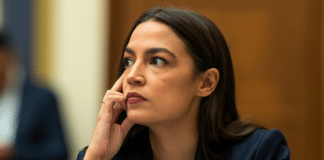The Trump administration is charging forward with a major expansion of offshore oil and gas leasing, reversing Biden-era restrictions and signaling a renewed push for American energy dominance. The Interior Department’s Bureau of Ocean Energy Management (BOEM) announced a detailed lease sale schedule covering the Gulf of America and Alaska’s Cook Inlet.
The schedule stems from the One Big Beautiful Bill Act signed by President Donald Trump and multiple energy-focused executive orders. It outlines at least 30 lease sales in the Gulf of America starting December 10 and at least six lease sales in Cook Inlet beginning in March 2026.
In the Gulf of America, BOEM manages nearly 3.2 billion acres of the Outer Continental Shelf—larger than the total land mass of the U.S. The region produced 667.5 million barrels of oil in FY 2024, accounting for 14% of total U.S. production. It’s estimated to hold 48 billion barrels of recoverable oil and 141 trillion cubic feet of natural gas.
Lease Sale 262, set for December, will offer roughly 80 million acres across the Gulf’s planning areas. Blocks range from shallow 9-foot depths to over 11,100 feet deep. This marks the first of three sales under the 2024–2029 leasing program, with at least 30 total sales scheduled through 2040.
To incentivize participation, BOEM is proposing a 16⅔% royalty rate—the lowest for deepwater leases since 2007. The Interior Department says this approach offers industry stability and supports deepwater infrastructure critical to U.S. energy resilience, job creation, and GDP growth.
In Alaska, Cook Inlet lease sales will begin in March 2026 and continue through 2032. The area, located near Anchorage, is strategically positioned as a gateway to the Arctic and a key component of American energy security. The administration says the sales will support local economies, create jobs, and attract long-term investment.
These actions align with Trump’s executive orders, including Unleashing American Energy, Declaring a National Energy Emergency, and Addressing the National Energy Emergency. They prioritize reduced foreign dependence and economic growth through energy production.
BOEM also published a new environmental impact statement to support leasing in the Gulf. The agency says this reflects a commitment to transparency, legal compliance, and reduced permitting delays for energy producers.





